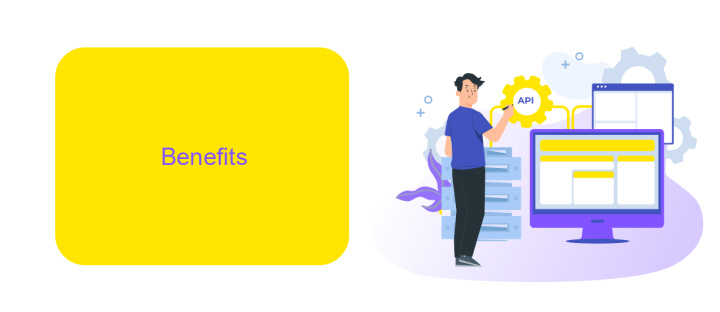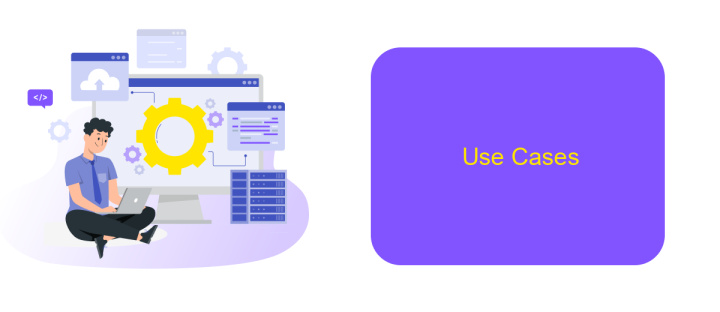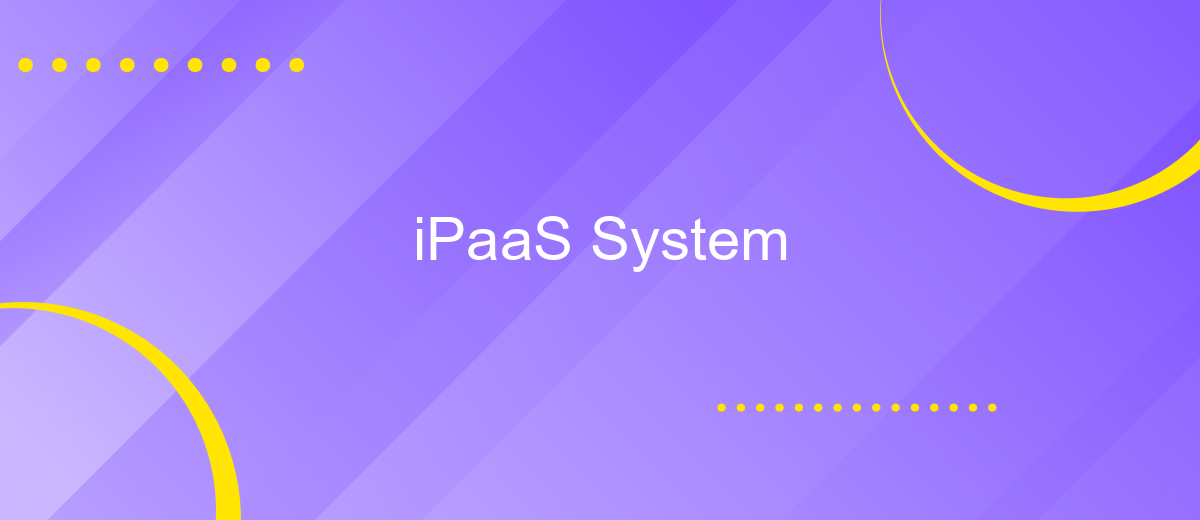iPaaS System
An Integration Platform as a Service (iPaaS) system is a cloud-based solution designed to connect disparate applications, data, and processes across various environments. By leveraging iPaaS, organizations can streamline workflows, enhance data integration, and improve overall operational efficiency. This article explores the key features, benefits, and considerations of implementing an iPaaS system within modern enterprises.
Overview
iPaaS (Integration Platform as a Service) is a cloud-based service that enables seamless integration of various applications and data sources. It provides tools and functionalities to connect different systems, facilitating data flow and communication between them. This integration is crucial for businesses looking to streamline their operations and improve efficiency.
- Automated data synchronization
- Real-time analytics and monitoring
- Scalable and flexible architecture
- Pre-built connectors for popular applications
- Enhanced security and compliance
One notable iPaaS solution is ApiX-Drive, which simplifies the integration process by offering a user-friendly interface and pre-configured templates. With ApiX-Drive, businesses can quickly set up integrations without the need for extensive coding knowledge. This service supports a wide range of applications, making it easier for companies to automate workflows and ensure data consistency across their systems.
Benefits

Implementing an iPaaS system offers numerous benefits for businesses looking to streamline their operations. One of the primary advantages is the ability to seamlessly integrate various applications and data sources, eliminating the need for manual data entry and reducing the risk of errors. This leads to improved data accuracy and consistency across the organization, which is crucial for making informed business decisions. Additionally, iPaaS systems often come with pre-built connectors and templates, allowing for quick and easy integration without the need for extensive coding knowledge. This ultimately saves time and resources, enabling teams to focus on more strategic tasks.
Another significant benefit of using an iPaaS system is its scalability and flexibility. As businesses grow and evolve, their integration needs can change rapidly. iPaaS platforms like ApiX-Drive offer the ability to effortlessly scale integrations up or down based on current requirements. Moreover, these platforms provide robust monitoring and management tools, ensuring that all integrations run smoothly and any issues are promptly addressed. This level of control and adaptability is essential for maintaining operational efficiency and staying competitive in today's fast-paced business environment.
Features

iPaaS (Integration Platform as a Service) systems offer a range of features designed to streamline and enhance the process of integrating various applications and services. These platforms are essential for businesses looking to automate workflows, synchronize data, and improve operational efficiency.
- Seamless Integration: iPaaS systems like ApiX-Drive enable seamless integration between different software applications, allowing data to flow effortlessly across platforms.
- Automated Workflows: These systems automate workflows by triggering specific actions based on predefined conditions, reducing the need for manual intervention.
- Data Synchronization: iPaaS ensures that data is consistently updated across all integrated applications, minimizing discrepancies and errors.
- Scalability: iPaaS platforms are designed to scale with your business, accommodating increasing data volumes and integration complexities.
- Real-time Monitoring: They offer real-time monitoring and analytics, providing insights into the performance of integrations and identifying potential issues promptly.
Overall, iPaaS systems like ApiX-Drive are invaluable for businesses aiming to enhance their integration capabilities, automate processes, and maintain data consistency across various applications. By leveraging these features, companies can achieve greater efficiency and drive better business outcomes.
Use Cases

iPaaS systems are increasingly becoming essential tools for businesses looking to streamline their operations and enhance connectivity between various applications. They provide a centralized platform to manage and integrate different software solutions, facilitating seamless data flow and operational efficiency.
One of the primary use cases for iPaaS systems is automating workflows between disparate applications. For instance, ApiX-Drive allows businesses to connect CRM systems with email marketing tools, ensuring that customer data is consistently updated across platforms. This automation reduces manual errors and saves valuable time.
- Data synchronization between CRM and ERP systems
- Automated marketing campaigns triggered by customer actions
- Integration of e-commerce platforms with inventory management systems
- Real-time analytics and reporting by connecting BI tools with data sources
Another significant use case is enhancing customer experiences by providing personalized interactions based on integrated data insights. With iPaaS systems like ApiX-Drive, businesses can unify customer data from various touchpoints, enabling them to deliver tailored services and communications. This holistic approach not only improves customer satisfaction but also drives business growth.
Implementation
Implementing an iPaaS system involves several critical steps to ensure seamless integration and data flow between disparate applications. Initially, it is essential to conduct a thorough analysis of the existing IT infrastructure and identify the key integration points. This includes cataloging all the applications, databases, and services that need to be interconnected. Once the integration points are identified, a detailed mapping of data flow and transformation rules should be created to facilitate smooth data exchange.
After the planning phase, the next step is to select a reliable iPaaS provider. ApiX-Drive, for instance, offers robust tools for configuring integrations without extensive coding. The platform supports a wide range of applications, making it easier to connect different systems. Configuring the integrations involves setting up connectors, defining triggers and actions, and testing the workflows to ensure they operate as expected. Regular monitoring and maintenance are also crucial to address any issues that may arise and to optimize performance continually.
- Automate the work of an online store or landing
- Empower through integration
- Don't spend money on programmers and integrators
- Save time by automating routine tasks
FAQ
What is iPaaS?
How does iPaaS benefit businesses?
What types of integrations can iPaaS handle?
Is technical expertise required to use iPaaS?
Can iPaaS be used for real-time data integration?
Routine tasks take a lot of time from employees? Do they burn out, do not have enough working day for the main duties and important things? Do you understand that the only way out of this situation in modern realities is automation? Try Apix-Drive for free and make sure that the online connector in 5 minutes of setting up integration will remove a significant part of the routine from your life and free up time for you and your employees.


